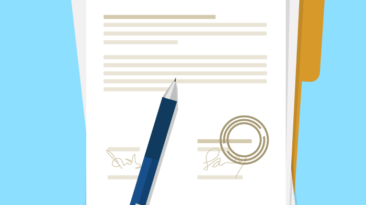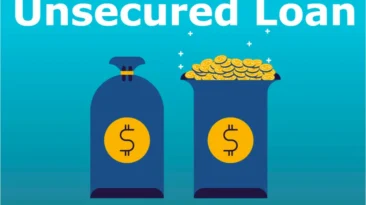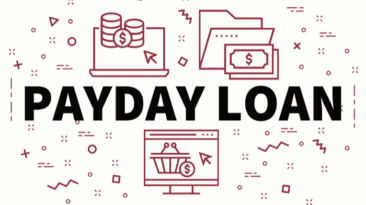Owning a home is a dream shared by many, and mortgage loans play a vital role in turning that dream into reality. Whether you’re a first-time homebuyer or looking to refinance an existing mortgage, understanding the world of mortgage loans is essential. In this article, we will delve into the intricacies of mortgage loans, discussing what they are, how they work, and essential tips to consider before applying.
Let’s embark on this journey together and gain the experience, expertise, authority, and trust to confidently navigate the mortgage landscape.
Mortgage Loans Explained
A mortgage loan is a type of loan specifically designed to help individuals and families purchase or refinance residential properties. With a mortgage, borrowers can finance the cost of their home over an extended period, typically 15 to 30 years. The property itself serves as collateral for the loan.
Understanding the Types of Mortgage Loans
Several types of mortgage loans cater to different homebuyers’ needs and financial situations:
1. Conventional Mortgages
Description: Traditional mortgages are not insured or guaranteed by the government.
Conventional mortgages are offered by private lenders and banks, and they typically require a down payment of at least 3% to 20% of the home’s purchase price. These loans often come with competitive interest rates for borrowers with good credit scores.
2. FHA (Federal Housing Administration) Loans
Description: Government-insured loans designed to assist homebuyers with lower credit scores and smaller down payments.
FHA loans are a popular option for first-time homebuyers or those with limited funds for a down payment. They require as little as 3.5% down and are more lenient with credit score requirements.
3. VA (Veterans Affairs) Loans
Description: Loans are exclusively available to eligible military service members, veterans, and their spouses.
VA loans are designed to support current and former military personnel in achieving homeownership. They offer favorable terms, including zero down payment options and no private mortgage insurance (PMI) requirements.
4. USDA (United States Department of Agriculture) Loans
Description: Loans for eligible homebuyers in rural or suburban areas, offering low or no down payment options.
USDA loans are targeted at individuals or families with moderate incomes living in designated rural or suburban areas. These loans promote homeownership in less densely populated regions.
5. Jumbo Loans
Description: Loans that exceed the maximum limit set by Fannie Mae and Freddie Mac for conventional mortgages.
Jumbo loans are used for high-priced properties, as they exceed the standard loan limits. They typically come with stricter qualification criteria and higher interest rates.
The Benefits of Mortgage Loans
Mortgage loans offer several advantages that make them a popular choice for homeownership:
1. Homeownership Opportunities
Description: Mortgage loans make homeownership attainable for individuals who may not have sufficient funds for an outright home purchase.
Mortgage loans allow individuals and families to spread the cost of their homes over time, making it feasible to buy a property without a substantial upfront payment.
2. Low-Interest Rates
Description: Mortgages often come with lower interest rates compared to other types of loans, making homeownership more affordable.
With favorable interest rates, borrowers can save thousands of dollars over the life of the loan, reducing the overall cost of homeownership.
3. Building Equity
Description: As homeowners make mortgage payments, they build equity in their property, which can be a valuable asset over time.
Mortgage payments not only go towards paying off the loan but also contribute to building equity in the property, which can be tapped into through refinancing or selling the home.
4. Tax Deductible Interest
Description: Homeowners may be able to deduct mortgage interest payments from their annual income taxes, providing tax benefits.
The ability to deduct mortgage interest can result in significant tax savings, especially during the early years of the loan when interest payments are higher.
5. Refinancing Opportunities
Description: Homeowners can refinance their mortgages to take advantage of lower interest rates or adjust the loan term.
Refinancing allows homeowners to renegotiate the terms of their mortgage, potentially reducing monthly payments or paying off the loan sooner.
Finding the Right Mortgage Loan
Choosing the right mortgage loan is crucial to ensuring a smooth and affordable homeownership experience. Here are essential steps to consider when searching for the perfect loan:
1. Assess Your Financial Readiness
Before applying for a mortgage loan, assess your financial readiness for homeownership. Review your credit score, savings for a down payment, and overall debt-to-income ratio.
2. Determine Your Budget
Calculate how much house you can afford by considering your monthly income, expenses, and potential homeownership costs, such as property taxes and insurance.
3. Research Lenders and Loan Types
Shop around and research various lenders and mortgage loan types to find the best fit for your financial situation and homeownership goals.
4. Get Pre-Qualified or Pre-Approved
Obtain pre-qualification or pre-approval from lenders to know how much you can borrow and demonstrate your seriousness as a buyer to sellers.
5. Compare Interest Rates and Loan Terms
Compare interest rates, loan terms, and closing costs from multiple lenders to find the most competitive offer.
6. Consider Down Payment Options
Determine the down payment amount you’re comfortable with, considering options for lower down payment programs if needed.
7. Evaluate Loan Fees and Closing Costs
Review all associated fees and closing costs, including origination fees, appraisal costs, and title insurance, to avoid surprises during the closing process.
8. Seek Professional Advice
If you’re uncertain about the mortgage process or need guidance, consider seeking advice from a mortgage broker or financial advisor.
Frequently Asked Questions (FAQs)
Here are some common questions about mortgage loans, along with concise answers to help you understand better:
1. What Is a Mortgage Loan?
A mortgage loan is a type of loan specifically designed to help individuals and families purchase or refinance residential properties. The property itself serves as collateral for the loan.
2. How Does a Mortgage Loan Work?
A mortgage loan allows borrowers to finance the cost of their home over an extended period, typically with regular monthly payments. The property serves as collateral, giving the lender security in case of default.
3. How Much Down Payment Do I Need for a Mortgage Loan?
The required down payment varies depending on the type of mortgage loan and the lender’s policies. Conventional loans typically require at least 3% to 20% down, while FHA and VA loans offer lower down payment options.
4. What Factors Affect Mortgage Interest Rates?
Mortgage interest rates are influenced by factors such as the borrower’s credit score, loan term, loan amount, and overall economic conditions.
5. What Is Private Mortgage Insurance (PMI)?
PMI is insurance that protects the lender in case the borrower defaults on the mortgage loan. It is typically required for conventional loans with a down payment of less than 20%.
6. Can I Refinance My Mortgage Loan?
Yes, homeowners can refinance their mortgage loans to take advantage of lower interest rates, shorten the loan term, or switch from an adjustable rate to a fixed-rate mortgage.
Conclusion: Achieving Homeownership Through Mortgage Loans
Mortgage loans are a fundamental tool that empowers individuals and families to achieve the dream of homeownership. By understanding the different types of mortgage loans, their benefits, and how to navigate the mortgage process, potential homeowners can make informed decisions for their financial future.
Remember, homeownership is a significant milestone, and finding the right mortgage loan can pave the way for a stable and rewarding homeownership journey.





Add comment